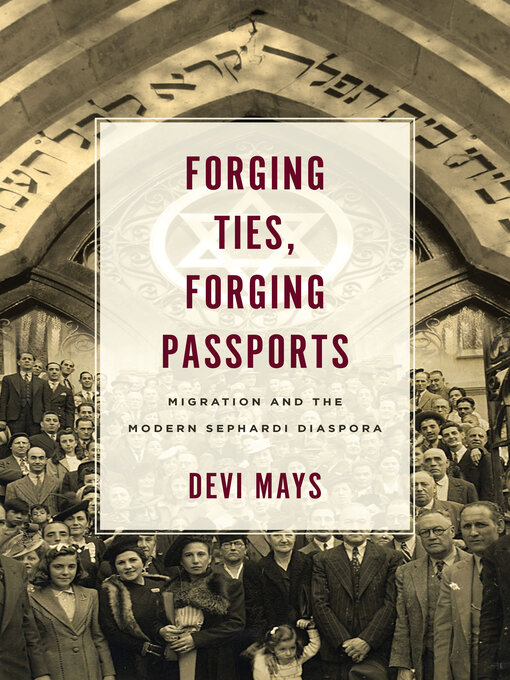Forging Ties, Forging Passports is a history of migration and nation-building from the vantage point of those who lived between states. Devi Mays traces the histories of Ottoman Sephardi Jews who emigrated to the Americas—and especially to Mexico—in the late nineteenth and early twentieth centuries, and the complex relationships they maintained to legal documentation as they migrated and settled into new homes. Mays considers the shifting notions of belonging, nationality, and citizenship through the stories of individual women, men, and families who navigated these transitions in their everyday lives, as well as through the paperwork they carried.
In the aftermath of World War I and the Mexican Revolution, migrants traversed new layers of bureaucracy and authority amid shifting political regimes as they crossed and were crossed by borders. Ottoman Sephardi migrants in Mexico resisted unequivocal classification as either Ottoman expatriates or Mexicans through their links to the Sephardi diaspora in formerly Ottoman lands, France, Cuba, and the United States. By making use of commercial and familial networks, these Sephardi migrants maintained a geographic and social mobility that challenged the physical borders of the state and the conceptual boundaries of the nation.
